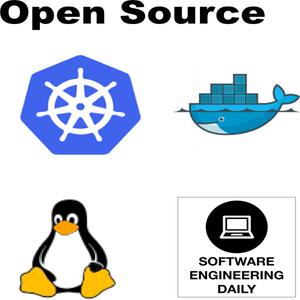
Open Source Archives - Software Engineering Daily
Open Source Archives - Software Engineering Daily
Software Engineering Daily
- 38 minutes 42 secondsBuilding a Unified Hardware API at Intel with James Reinders
oneAPI is an open standard for a unified API to be used across different computing accelerator architectures. This including GPUs, AI accelerators, and FPGAs.
The goal of oneAPI is to eliminate the need for developers to maintain separate code bases, multiple programming languages, tools, and workflows for each architecture.
James Reinders is an engineer at Intel and has experience with parallel computing spanning four decades. He joins the show today to talk about oneAPI.
 This episode is hosted by Lee Atchison. Lee Atchison is a software architect, author, and thought leader on cloud computing and application modernization. His best-selling book, Architecting for Scale (O’Reilly Media), is an essential resource for technical teams looking to maintain high availability and manage risk in their cloud environments.
This episode is hosted by Lee Atchison. Lee Atchison is a software architect, author, and thought leader on cloud computing and application modernization. His best-selling book, Architecting for Scale (O’Reilly Media), is an essential resource for technical teams looking to maintain high availability and manage risk in their cloud environments.Lee is the host of his podcast, Modern Digital Business, an engaging and informative podcast produced for people looking to build and grow their digital business with the help of modern applications and processes developed for today’s fast-moving business environment. Listen at mdb.fm. Follow Lee at softwarearchitectureinsights.com, and see all his content at leeatchison.com.
Please click here to see the transcript of this episode.
Sponsorship inquiries: [email protected]
The post Building a Unified Hardware API at Intel with James Reinders appeared first on Software Engineering Daily.
8 February 2024, 10:00 am - 47 minutes 41 secondsBuilding a State Machine Backend with Adam Berger
When Adam Berger was at Uber, his team was responsible for ensuring that Uber Eats merchants correctly receive and fulfill orders. This required them to think hard about engineering workflows and state management systems. Six years of experience at Uber motivated Adam to create State Backed, which is an open-source backend system written in Typescript. The platform is oriented around using state machines to model application logic, and automatically handles the associated persistence, infrastructure, and consistency.
Adam joins the show to talk about state machines, why they’re the right paradigm to manage global application state, and what are the practical advantages of using state machines in a backend platform.
 This episode is hosted by Lee Atchison. Lee Atchison is a software architect, author, and thought leader on cloud computing and application modernization. His best-selling book, Architecting for Scale (O’Reilly Media), is an essential resource for technical teams looking to maintain high availability and manage risk in their cloud environments.
This episode is hosted by Lee Atchison. Lee Atchison is a software architect, author, and thought leader on cloud computing and application modernization. His best-selling book, Architecting for Scale (O’Reilly Media), is an essential resource for technical teams looking to maintain high availability and manage risk in their cloud environments.Lee is the host of his podcast, Modern Digital Business, an engaging and informative podcast produced for people looking to build and grow their digital business with the help of modern applications and processes developed for today’s fast-moving business environment. Listen at mdb.fm. Follow Lee at softwarearchitectureinsights.com, and see all his content at leeatchison.com.
Please click here to see the transcript of this episode.
Sponsorship inquiries: [email protected]
The post Building a State Machine Backend with Adam Berger appeared first on Software Engineering Daily.
16 November 2023, 10:00 am - 48 minutes 1 secondOpen Source Contributing with Brian Douglas
 The open source coding philosophy has enormous appeal to many software engineers, and with good reason. Open source libraries, applications, and operating systems are now essential to the overall technology ecosystem. And the number of open source projects is only increasing. But many developers don’t know how to get involved in open source. Or, they may have even faced resistance when trying to make a pull request to their favorite open source codebase.
The open source coding philosophy has enormous appeal to many software engineers, and with good reason. Open source libraries, applications, and operating systems are now essential to the overall technology ecosystem. And the number of open source projects is only increasing. But many developers don’t know how to get involved in open source. Or, they may have even faced resistance when trying to make a pull request to their favorite open source codebase.Open Sauced is a platform to help developers get involved in open source development. While the number of GitHub stars on a project is often seen as a metric of success for a code base, Open Sauced focuses on the number of new contributors on a project. This number serves as a signal to help drive the platform’s recommendation system, which pairs its users with open source projects in need of developers. Brian Douglas is a former Developer Experience Lead at Netlify and he was the Director of Developer Advocacy at GitHub. He is also the founder and CEO of Open Sauced and he is our guest in this episode.
Josh Goldberg is an independent full time open source developer in the TypeScript ecosystem. He works on projects that help developers write better TypeScript more easily, most notably on typescript-eslint: the tooling that enables ESLint and Prettier to run on TypeScript code. Josh regularly contributes to open source projects in the ecosystem such as ESLint and TypeScript. Josh is a Microsoft MVP for developer technologies and the author of the acclaimed Learning TypeScript (O’Reilly), a cherished resource for any developer seeking to learn TypeScript without any prior experience outside of JavaScript. Josh regularly presents talks and workshops at bootcamps, conferences, and meetups to share knowledge on TypeScript, static analysis, open source, and general frontend and web development. You can find Josh on: Bluesky, Fosstodon, Twitter, Twitch, YouTube, and joshuakgoldberg.com. Please click here to see the transcript for this episode. Sponsorship inquiries: [email protected]The post Open Source Contributing with Brian Douglas appeared first on Software Engineering Daily.
8 November 2023, 10:00 am - 41 minutes 23 secondsTemporal with Max Fateev
There are countless real world scenarios where a workflow or process has multiple steps, and some steps must be completed before others can be started. Think of something as simple as cooking dinner. First you look up a recipe, then you write down the ingredients you need, you go shopping, and then you cook. These steps must be run in a certain order, and the state of the workflow must be tracked throughout. Workflow management is everywhere in the software world, and today it’s common for teams to engineer custom solutions. This makes sense, because creating a general-purpose solution for workflow management is a hard conceptual problem, and perhaps an even harder engineering challenge.
Maxim Fateev has a deep background engineering distributed systems and workflow management services at Google, Amazon, and Microsoft. In 2015, he joined Uber and helped create the open-source project, Cadence, which is an orchestration engine to execute asynchronous long-running business logic. The success of Cadence led Max to co-found Temporal, which is an open-source programming package for workflow execution. Max joins the show today to talk about the engineering challenges at Temporal, the concept of “durable execution”, how he organizes his engineering teams, and more.
 Sean’s been an academic, startup founder, and Googler. He has published works covering a wide range of topics from information visualization to quantum computing. Currently, Sean is Head of Marketing and Developer Relations at Skyflow and host of the podcast Partially Redacted, a podcast about privacy and security engineering. You can connect with Sean on Twitter @seanfalconer.
Please click here to see the transcript for this episode.
Sponsorship inquiries: [email protected]
Sean’s been an academic, startup founder, and Googler. He has published works covering a wide range of topics from information visualization to quantum computing. Currently, Sean is Head of Marketing and Developer Relations at Skyflow and host of the podcast Partially Redacted, a podcast about privacy and security engineering. You can connect with Sean on Twitter @seanfalconer.
Please click here to see the transcript for this episode.
Sponsorship inquiries: [email protected]
The post Temporal with Max Fateev appeared first on Software Engineering Daily.
7 November 2023, 10:00 am - 37 minutes 49 secondsBuilding Pieces.app and the Future of Developer Productivity with Tsavo Knott
 Ongoing advances in generative AI are already having a huge impact on developer productivity. Tools like GitHub Copilot and ChatGPT are increasing the velocity of code development, and more advances are on the horizon. However, an ever-growing challenge for developers is how to manage their coding resources – things like code snippets, website links, messages, and screenshots. This is hard for individual developers, but even harder for teams.
Ongoing advances in generative AI are already having a huge impact on developer productivity. Tools like GitHub Copilot and ChatGPT are increasing the velocity of code development, and more advances are on the horizon. However, an ever-growing challenge for developers is how to manage their coding resources – things like code snippets, website links, messages, and screenshots. This is hard for individual developers, but even harder for teams.
Tsavo Knott is the Co-Founder and CEO of Pieces. Tsavo thinks deeply about developer productivity and he joins the podcast today to talk about how Pieces is using AI to automate the process of saving, curating, and iterating on coding resources for developers and teams.Full Disclosure: Pieces is a sponsor of Software Engineering Daily
 Mike Bifulco is CTO and co-founder of Craftwork. He’s also a developer advocate, writer, podcaster and serial startup founder. In past lives, Mike worked for Google, Stripe, Microsoft, and Gymnasium. Mike is also co-founder of APIs You Won’t Hate, a community for API Developers on the web. Mike’s publishes a weekly newsletter for product builders called Tiny Improvements at mikebifulco.com. Mike is on Mastodon at https://hachyderm.io/@irreverentmike
Mike Bifulco is CTO and co-founder of Craftwork. He’s also a developer advocate, writer, podcaster and serial startup founder. In past lives, Mike worked for Google, Stripe, Microsoft, and Gymnasium. Mike is also co-founder of APIs You Won’t Hate, a community for API Developers on the web. Mike’s publishes a weekly newsletter for product builders called Tiny Improvements at mikebifulco.com. Mike is on Mastodon at https://hachyderm.io/@irreverentmikePlease click here to view this show’s transcript.
Sponsorship inquiries: [email protected]
The post Building Pieces.app and the Future of Developer Productivity with Tsavo Knott appeared first on Software Engineering Daily.
25 October 2023, 1:00 pm - 49 minutes 52 secondsSimplifying Documentation with Sébastien Lorber
 In the realm of modern software development, clear and comprehensive documentation is essential for guiding users and contributors alike. Developers often struggle to create, manage, and maintain documentation that is both user-friendly and visually appealing.
In the realm of modern software development, clear and comprehensive documentation is essential for guiding users and contributors alike. Developers often struggle to create, manage, and maintain documentation that is both user-friendly and visually appealing.In this episode, we sit down with Sebastian Lorber, the lead maintainer of Docusaurus, a widely acclaimed open-source static site generator, purpose-built for documentation sites. Sebastian sheds light on how Docusaurus empowers developers to effortlessly build and deploy documentation websites that are functional, maintainable, and easy to brand.
This week in React Newsletter
 Mike Bifulco is CTO and co-founder of Craftwork. He’s also a developer advocate, writer, podcaster and serial startup founder. In past lives, Mike worked for Google, Stripe, Microsoft, and Gymnasium. Mike is also co-founder of APIs You Won’t Hate, a community for API Developers on the web. Mike’s publishes a weekly newsletter for product builders called Tiny Improvements at mikebifulco.com. Mike is on Mastodon at https://hachyderm.io/@irreverentmike
Mike Bifulco is CTO and co-founder of Craftwork. He’s also a developer advocate, writer, podcaster and serial startup founder. In past lives, Mike worked for Google, Stripe, Microsoft, and Gymnasium. Mike is also co-founder of APIs You Won’t Hate, a community for API Developers on the web. Mike’s publishes a weekly newsletter for product builders called Tiny Improvements at mikebifulco.com. Mike is on Mastodon at https://hachyderm.io/@irreverentmikeSponsorship inquiries: [email protected]
Please click here to view this show’s transcript.
The post Simplifying Documentation with Sébastien Lorber appeared first on Software Engineering Daily.
3 August 2023, 9:00 am - 55 minutes 40 secondsCloud-native Authorization with Tim Hinrichs
 Enabling authorization policies across disparate cloud-native environments such as containers, microservices and modern application delivery infrastructure is complex and can be a roadblock for software engineering teams.
Enabling authorization policies across disparate cloud-native environments such as containers, microservices and modern application delivery infrastructure is complex and can be a roadblock for software engineering teams.Open Policy Agent, or OPA, is an open, declarative, policy-as-code approach to authorization that reduces security and compliance burden for engineering teams. Business context is translated into declarative policy statements. These policy statements are compiled into code and deployed as agents that can be injected into any process, such as an API gateway, Kubernetes provisioning service, public cloud access controls, or continuous delivery automation service.
Styra created and contributed OPA to the Cloud Native Computing Foundation where it is a graduated project with over 130M downloads to date and is used by large companies. Styra’s enterprise commercial offering, Declarative Authorization Service (DAS), is specifically designed for OPA and includes the ability to author policies, preview impacts of new policies, and document the history of old policies, all through a single view.
Tim Hinrichs, CTO and founder of Styra, joins the show today to discuss how to make authorization policies easier to author, distribute, and monitor.
One note of disclosure to be aware of: Styra is a portfolio company of Capital One Ventures, the strategic investing arm of Capital One. Views and questions expressed in this podcast and related material are my own, or those of my guest, and do not reflect the views of Capital One Ventures or its respective affiliates.
FOLLOW Jocelyn: twitter.com/jocelynbyrne
Sponsorship inquiries: [email protected]
The post Cloud-native Authorization with Tim Hinrichs appeared first on Software Engineering Daily.
9 August 2022, 4:00 pm - 40 minutes 26 secondsOpen-Source Cloud Asset Management with Yevgeny Pats
 This episode is hosted by Alex DeBrie.
This episode is hosted by Alex DeBrie.
Alex is the author of The DynamoDB Book, the comprehensive guide to data modeling with DynamoDB, as well as The DynamoDB Guide, a free guided introduction to DynamoDB. He runs a consulting company where he assists clients with DynamoDB data modeling, serverless architectures, and general AWS usage. You can find more of his work at alexdebrie.com.Nearly all new tech companies build in a public cloud and established companies are rapidly migrating to the cloud from their on-prem data centers. But this move to the cloud can lead to a visibility problem. Cloud Providers offer not only Compute instances but also manage services like databases, blob storage, queues and more. It can be difficult for SRE teams and security departments to understand what is happening across a company’s cloud accounts.
Yevgeny Pats is the creator of CloudQuery, an open source cloud asset inventory powered by SQL. CloudQuery allows you to ingest and structure the resources in your cloud accounts so that you can query them using SQL. This allows SRE teams to understand the source of specific resources while security teams can ensure compliance with policies.
In this episode we’ll discuss CloudQuery, Yevgeny’s entrepreneurial background and raising funding with an open source project
Sponsorship inquiries: [email protected].
The post Open-Source Cloud Asset Management with Yevgeny Pats appeared first on Software Engineering Daily.
11 June 2022, 3:16 am - 34 minutes 56 secondsInfluxData with Zoe Steinkamp

InfluxDB is an open-source time-series database. It’s maintained by InfuxData who offers a suite of products that help organizations gain insights from time-series data. In this episode, I interview Zoe Steinkamp, Software Engineering and Developer Advocate at InfluxData. We explore some of the common use cases for time-series databases such as IoT and some recent announcements such as the ability to run flux queries right inside VS Code.
Sponsorship inquiries: [email protected]
The post InfluxData with Zoe Steinkamp appeared first on Software Engineering Daily.
16 December 2021, 2:00 am - 44 minutes 20 secondsNuxt.js with Alexander Lichter

When creating a website, there’s no shortage of choices for how to do it. Builders must make strategic decisions about the language or framework they want to adopt. An important first consideration for many is selecting a web application framework like React or Vue. Motivated by a low page response time and good user experience, many developers want their site to be server-side rendered. Nuxt.js is a free and open-source web application framework based on Vue.js which, among other benefits, brings server-side rendering to Vue.js developers.
In this episode, I interview Alexander Lichter, founder of Development and Nuxt.js maintainer. We discuss the features and Nuxt and what role it can play in your next web application.
Show Notes:
Sponsorship inquiries: [email protected]
The post Nuxt.js with Alexander Lichter appeared first on Software Engineering Daily.
24 November 2021, 5:00 pm - 47 minutes 7 secondsAngular Dev Tools with Minko Gechev

Angular is a free and open-source web application framework. It’s maintained by the Angular team at Google. It’s used by millions of web applications and has a strong ecosystem of core contributors and library builders.
In this episode, I interview Minko Gechev, Developer Relations Lead at Google. We explore several aspects of open-source software development, Tensorflow.js, Angular, and a few other things worth sticking around for.
Sponsorship inquiries: [email protected]
The post Angular Dev Tools with Minko Gechev appeared first on Software Engineering Daily.
5 November 2021, 9:00 am - More Episodes? Get the App
Your feedback is valuable to us. Should you encounter any bugs, glitches, lack of functionality or other problems, please email us on [email protected] or join Moon.FM Telegram Group where you can talk directly to the dev team who are happy to answer any queries.



 Software Engineering Daily
Software Engineering Daily
 Python Bytes
Python Bytes
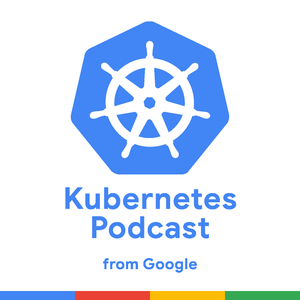 Kubernetes Podcast from Google
Kubernetes Podcast from Google
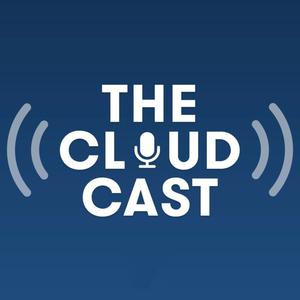 The Cloudcast
The Cloudcast
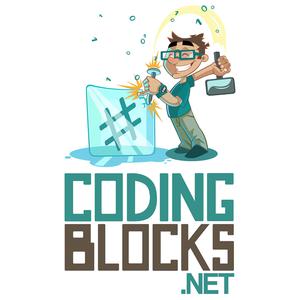 Coding Blocks
Coding Blocks
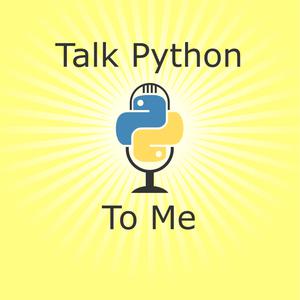 Talk Python To Me
Talk Python To Me